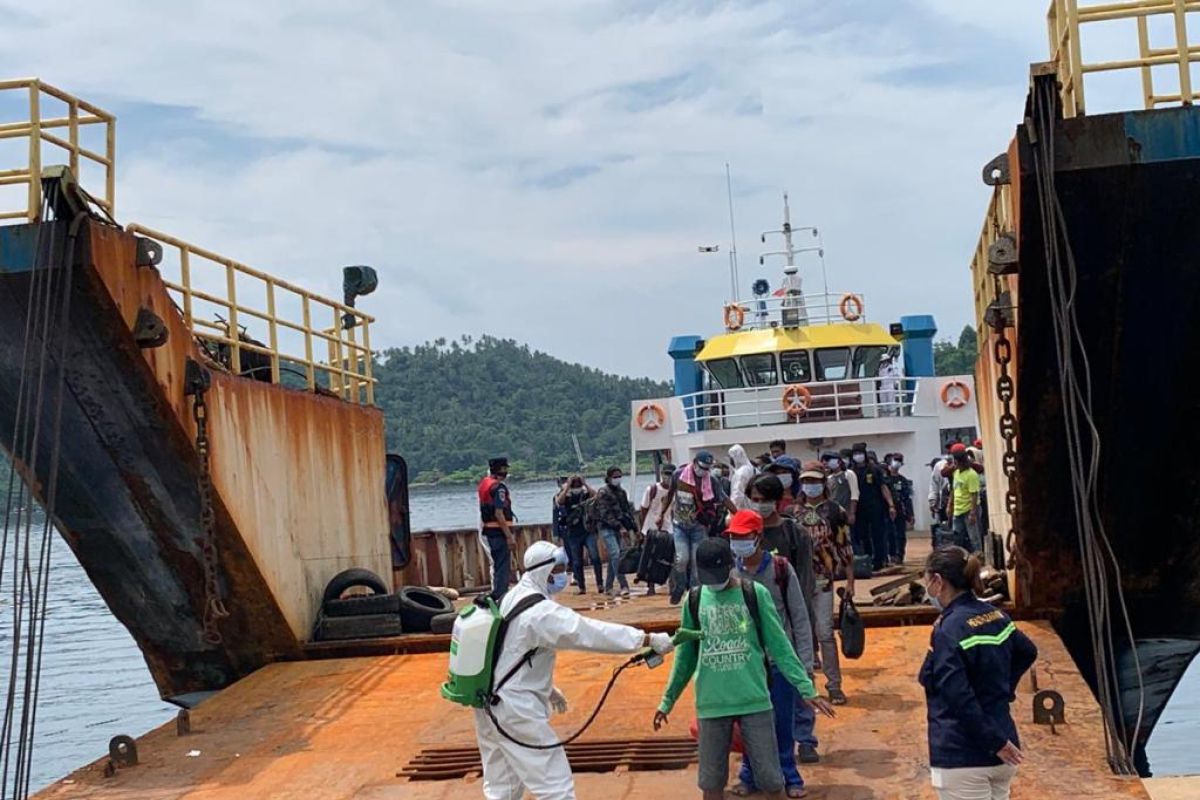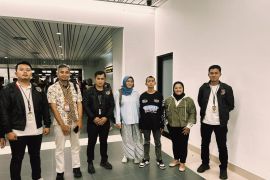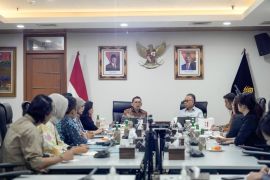Conducting the repatriation of our seafarers by sea is the first time for Indonesia and ChinaJakarta (ANTARA) - At least 155 Indonesian seafarers and the bodies of two sailors who died while working on board Chinese fishing vessels have been repatriated through the Bitung Port in North Sulawesi, Foreign Minister Retno Marsudi said.
Two ships, Long Xin 601 and Long Xin 610, ferried the sailors, who were employed with 12 Chinese fishing vessels, back to Indonesia, Marsudi told journalists in Jakarta on Tuesday.
“Conducting the repatriation of our seafarers by sea is the first time for Indonesia and China,” she said, adding that the Indonesian government will continue to defend the legal rights of Indonesian seafarers through the mutual legal assistance pact signed by the two countries.
Marsudi also provided information about the repatriation of 13 Indonesian sailors stranded in Senegal. The sailors were repatriated by air from the West African country on Tuesday, she said.
Their return was part of the repatriation of 88 sailors to Indonesia from Senegal thanks to the Indonesian Embassy in Dakar's cooperation with the government of Senegal, she added.
In May this year, news of three Indonesian sailors who died on board two Chinese fishing vessels, Long Xin 629 and Long Xin 604, had grabbed headlines.
The sailors died in December, 2019 and March, 2020 while the fishing boats were sailing in the Pacific Ocean, and their bodies were buried at sea. News of their deaths went viral after it was reported by MBC, a South Korean TV station, and South Korean YouTuber Jang Hansol.
One Indonesian seafarer told MBC during an interview that sailors faced discrimination on Chinese vessels and their working conditions were also bad.
The experience of Indonesian sailors on Chinese fishing vessels Long Xin 605, Long Xin 629, and Tian Yu 8 bore evidence of human rights violations as they were robbed of their basic right to live, according to Migrant CARE.
Their accounts served as evidence of the real working conditions of Indonesian migrant workers, particularly those working in the maritime sector, Migrant CARE executive director Wahyu Susilo remarked.
Indonesian migrant workers in the maritime and fisheries sectors remain vulnerable to modern slavery practices. The Global Slavery Index, issued by Walk Free (2014-2016), an initiative Migrant CARE was part of, also reveals this fact, said Susilo.
According to the Global Slavery Index (2014-2016), several hundred thousand Indonesian crew working on board fishing vessels are trapped in modern slavery.
"This reality is saddening," Susilo said.
In 2015, the Indonesian government had launched an investigation into an alleged slavery case by Thai firm PT Pusaka Benjina Resource (PBR), based in Aru Island, Maluku province.
However, the government's move is yet to touch the fate of Indonesian seafarers working on foreign fishing vessels, Susilo pointed out. (INE)
EDITED BY INERelated news: Indonesia suggests MLA treaty with China for ship crew handling
Related news: Clamor grows for ending trafficking, slavery on the seas
Translator: Yashinta DP, Rahmad Nasution
Editor: Fardah Assegaf
Copyright © ANTARA 2020












